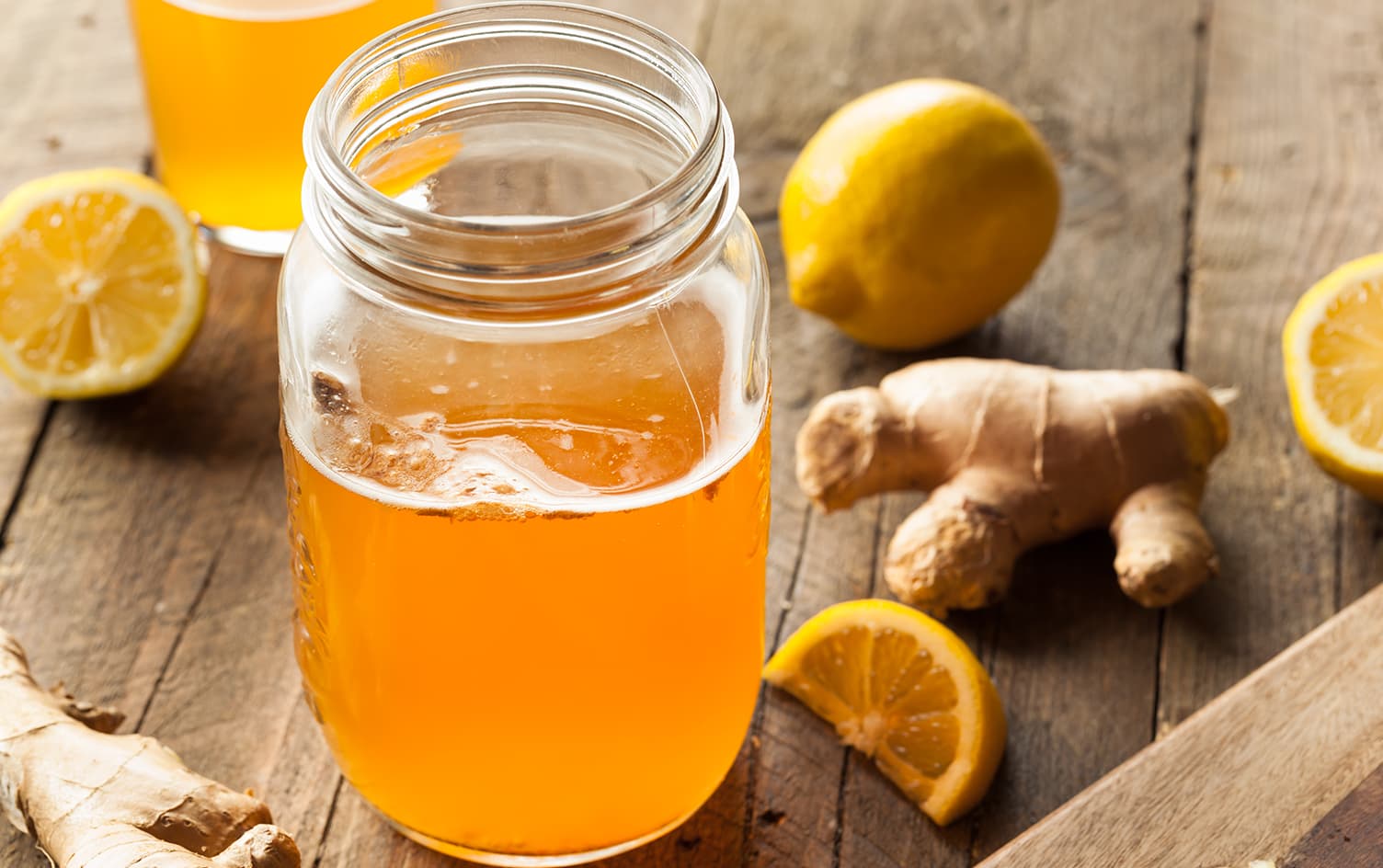No longer relegated to the “health food” corner at the back of the store, probiotic drinks have earned prime positions in mainstream supermarket aisles. These cool drinks are some of the hottest beverages to hit the grocery store!
The Probiotic Drink Line Up
1. Kefir. This tart, creamy drink is made by adding kefir grains (a mixture of bacteria, yeast and sugars) to milk and allowing it to ferment. It’s similar to yogurt, but thinner so that it’s drinkable. You can find kefir in most supermarkets as either plain or sweetened. Here are a couple of uses: Drink this probiotic-rich beverage straight, pour it over oats or muesli, add it to cold soups or blend with fruit into a smoothie.
2. Fermented milk. Fermented milks like buttermilk are made by allowing milk to ferment with bacteria (usually Lactobaccili or Bifidobacteria). This process helps break down protein and sugars in the milk to make it easier to digest. It may be an easier to tolerate dairy food for those with lactose intolerance and may help with irritable bowel syndrome, diarrhea and even hay fever.
3. Kombucha (aka mushroom tea). This centuries-old elixir is made by fermenting sweetened black or green tea with yeast and a bacteria starter culture for 1-2 weeks. Easily the most popular of the bunch, kombucha is the vinegary, slightly fizzy drink you’ve seen next to the bottled teas and juices in the supermarket. While it’s easy to make at home, homemade kombucha presents a higher risk for contamination, so choose your source wisely.
Should you buy the claims?
Both kefir and kombucha are centuries old. Only recently have they made their way into the mainstream. There are claims that kombucha can cure colds, prevent disease, boost energy and slow down aging. Sadly, the purported benefits reach beyond what the science supports at this point. Though these drinks may be beneficial, we have very little proof of what it can do.
Touted as a way to cleanse the body and boost energy and more, products make big promises. Let’s see how the claims stack up to the research:
- Detoxification? Probably not. There’s no solid research showing that these drinks remove any specific toxins for the body.
- Healthier digestion? Probably. Research is strongest for probiotics and gut health. It’s clear that certain probiotic strains help keep the digestive system running smoothly and can get you back on track should things go awry. Unfortunately, it’s hard to tell just how much or which strains you get in any of these drinks.
- Immune health benefits? Probably. Different probiotic strains have been studied and shown to help stimulate the immune system.
- Increased energy? Because kombucha is made from tea, it naturally contains a little caffeine and may help you feel more alert as a result.
Not all probiotic drinks are created equal. Probiotic potency will depend on the type and amount of bacterial strains in the drink, how the drink is handled (exposure to heat and light) and product freshness among other variables.
Should you buy probiotic drinks?
If you enjoy them, go for it. With protein, calcium and other nutrients in addition to probiotics, kefir is a clear winner. If you like the taste of kombucha, drink up. Well-brewed kombucha can be a good source of probiotics. Take a careful look at juices and other drinks that may be high in sugar – a trade off you don’t have to make for probiotics.
Though drinks are convenient and portable, remember there are many other ways to get your probiotics. In any case, children, pregnant women, the elderly and anyone with a compromised immune system should stick to pasteurized beverages.
Interested in learning more about probiotics? Check out The Best Sources of Probiotics.




